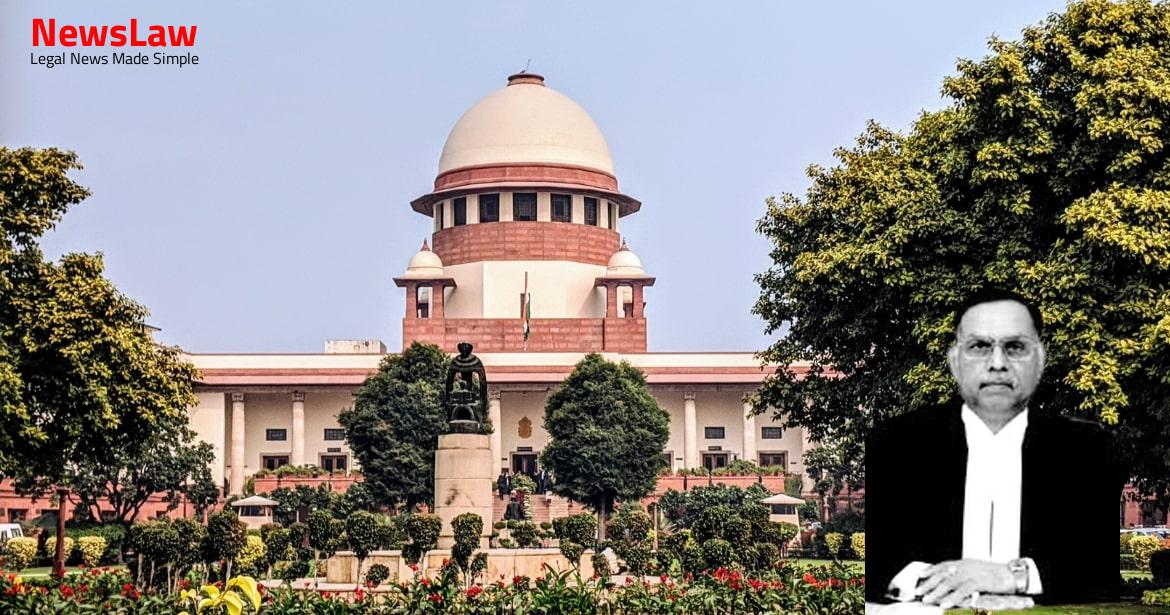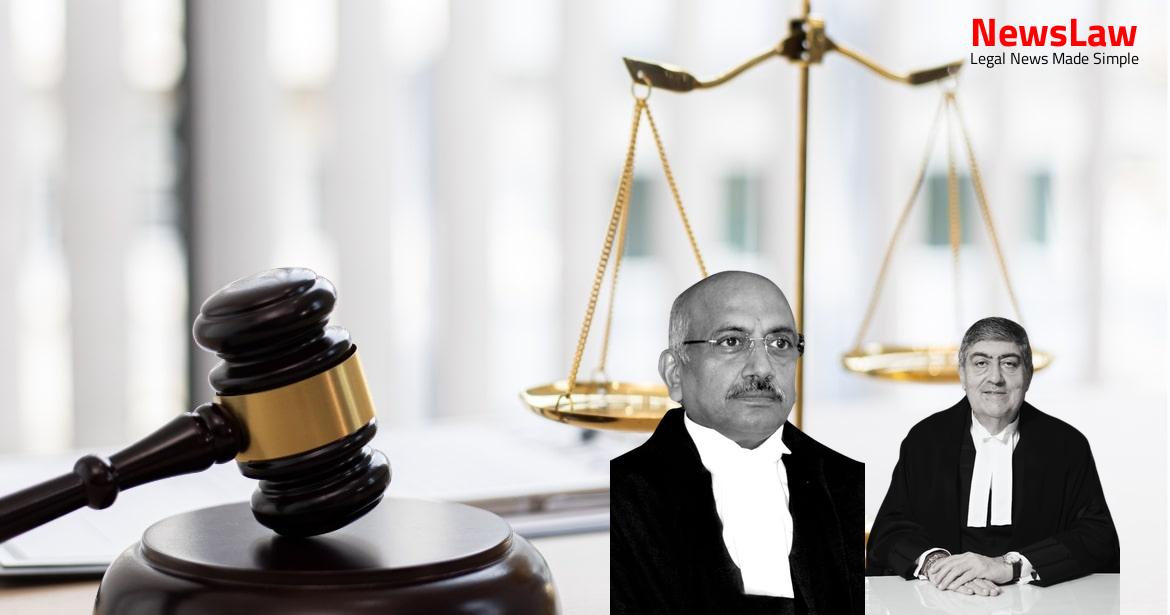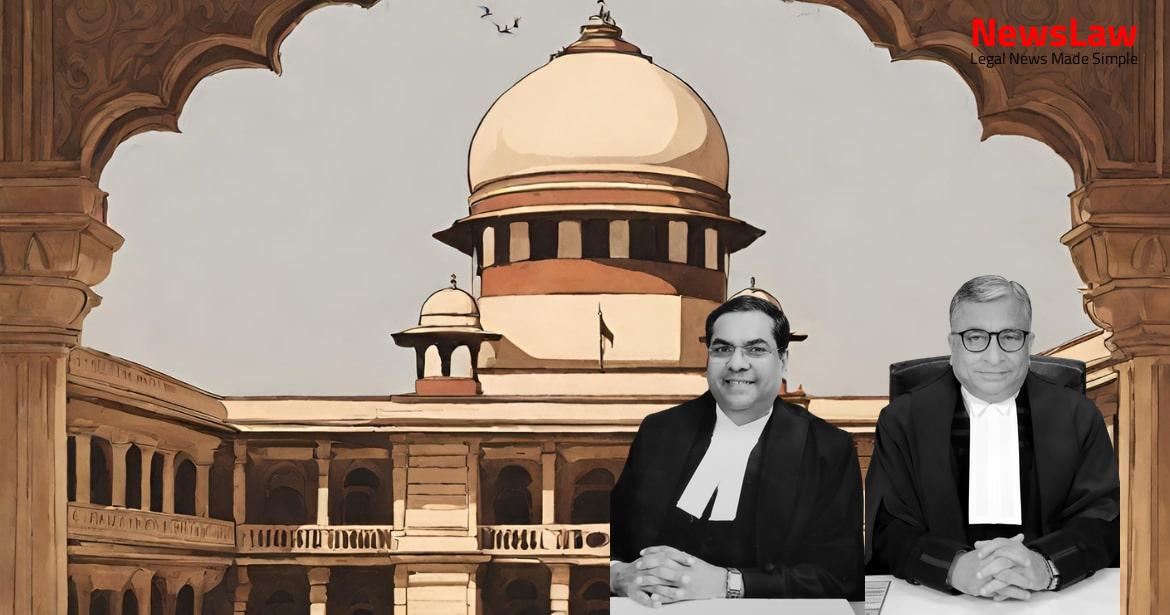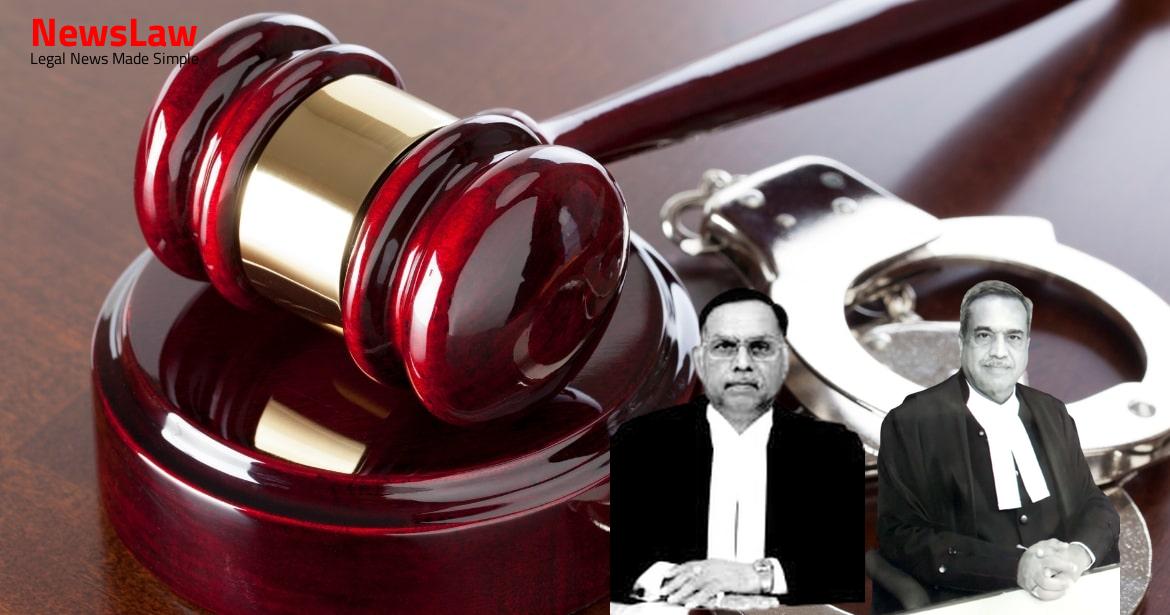Delve into the intricate legal analysis conducted by the court in a recent case concerning the transfer of a prisoner from one state to another. The case delves into the application of Article 142 of the Constitution and Section 406 of the Cr.P.C., highlighting the importance of upholding fair trial rights while navigating statutory provisions. Stay tuned to learn about the court’s nuanced approach to addressing complex legal issues surrounding prisoner transfers.
Facts
- The accused / Respondent No.3 is a sitting MLA from MAU Constituency from Bahujan Samaj Party (BSP).
- The accused / 3 Respondent is lodged in Roopnagar Jail, State of Punjab, pursuant to a case registered in Crime no.05 of 2019.
- There are several criminal cases pending against the accused / 3 Respondent in various Districts of the State of Uttar Pradesh.
- The accused / 3 Respondent has been advised bed rest due to minor ailments like diabetes, skin allergy, hypertension, backache, and throat infection.
- Efforts to transfer the accused / 3 Respondent to different courts have been futile as the jail authorities in Punjab have denied custody citing his health conditions.
Also Read: Judicial Analysis on Conversation Authenticity and Enquiry Need
Arguments
- The petitioner, State of Uttar Pradesh, seeks transfer of cases of the accused/respondent due to political rivalry and threats to his life.
- Petitioner argues that the State should be considered a ‘party interested’ under Section 406 of the Cr.P.C.
- The accused is allegedly operating illegal activities from jail in Punjab, causing harassment to family members.
- Numerous warrants to transfer the accused to Uttar Pradesh have been unsuccessful, citing his ill health as a reason.
- The petitioner asserts that fair trial rights under Article 21 necessitate the accused’s custodial presence for pending cases.
- The respondents argue the petition is not maintainable under Article 32 or Section 406, citing prior judgments.
- Concerns over delay in trials and inconvenience caused by accused’s medical reports are raised.
- Argument against invoking Article 142 powers to transfer the accused, as it may conflict with statutory provisions.
- Overall, the petitioner seeks urgent transfer of the accused to Uttar Pradesh for expedited trial proceedings.
- Powers under Article 32 of the Constitution of India cannot be used to take away a citizen’s fundamental rights.
- Family members of Respondent 3 are also being harassed by registering false cases.
- Due to political rivalry and serious threats to Respondent 3, the court may not grant the relief prayed for.
- The court considers it a fit case to invoke power under Article 142 of the Constitution of India.
- The appearance of Respondent 3 is necessary in connection with various other cases at the investigation stage in several police stations in Uttar Pradesh.
- Warrants issued for Respondent 3’s appearance are returned by the Jail Superintendent each time citing ill health of Respondent 3.
- The Solicitor General cites previous judgments to support the invocation of power under Article 142 for the current case.
- Respondent 3 has been in jail since 2005, so no delay can be attributed to him for delaying trials.
- Respondent 3 regularly appears through video conferencing in cases mentioned by the petitioner, hence there is no impediment for proceeding with the trials.
Also Read: Revisiting Reservation Limits: Upholding Equality
Analysis
- The accused/respondent is appearing through video conferencing in all cases in Uttar Pradesh even after being in jail in Punjab.
- The respondent is interested in expeditious trials to end false cases against him.
- The writ petition filed is not maintainable as rights under Articles 14 and 21 apply to persons against the state.
- Accused/3rd Respondent cannot oppose relief sought on minor health grounds.
- Medical conditions include high blood pressure, diabetes, and advice for complete rest approved by PGI Chandigarh.
- Authorities at Beur Central Jail, Patna, enabled the respondent to flout the law.
- State can be considered a ‘party interested’ under Section 406(2) of the Code of Criminal Procedure.
- Transfer of prisoner from one prison to another can be done under Article 142 of the Constitution of India.
- Convict or undertrial prisoner disobeying the law cannot oppose transfer.
- Party interested’ has a wide interpretation and is not defined under the Code of Criminal Procedure.
- Court can exercise power under Article 142 for prisoner transfer in specific circumstances.
- Misconception about the scope of Section 406 regarding case transfer.
- Words like ‘aggrieved party’, ‘party to the proceedings’, ‘party interested’ used in various statutes.
- Suspicion on conduct of the 3rd respondent for not applying for default bail or filing charge-sheets within statutory period.
- Investigation in Crime no.05 on the file of Police Station Mathaur, District Mohali, Punjab is still ongoing.
- State is the prosecuting agency in the criminal administration system.
- 3rd Respondent permitted to appear via video conferencing in new cases, some resulting in acquittals.
- Section 406 of the Code of Criminal Procedure, 1973 gives power to the Supreme Court to transfer cases and appeals from one High Court to another.
- The Supreme Court can only act on the application of the Attorney-General of India or a party interested.
- If an application under this section is deemed frivolous or vexatious and dismissed, the Supreme Court may order the applicant to pay compensation not exceeding one thousand rupees.
- Inter-State transfer of prisoners is governed by the Transfer of Prisoners Act, 1950.
- Section 3 of the said Act allows for the removal of prisoners from one State to another with the consent of both State Governments.
- The case in Crime No.05 of 2019 at Police Station Mathaur, District Mohali is at the investigation stage, hence Section 406 of the Cr.P.C. cannot be applied.
- The petitioner-State is involved in multiple cases with serious charges, some transferred to a Special Court for MPs/MLAs in Allahabad.
- It is the duty of the Court to ensure a free and fair trial.
- The argument that the Court cannot transfer an accused from Siwan Jail to another state is deemed unacceptable as the Court is not exercising equity jurisdiction when addressing fair trial issues.
- Case law supports the petitioner’s request for relief in the writ petition.
- The Writ Petition is partially allowed with specific directions and observations.
- The petition is held maintainable under Section 406 of the Code of Criminal Procedure, 1973.
- Transfer of the case as requested in Para-26(A) of the petition is not granted.
- The concept of fair trial and transfer of a prisoner from one jail to another is discussed in the case of Asha Ranjan v. State of Bihar.
- The court may issue necessary directions under Article 142 of the Constitution in cases where statutory provisions do not cover the transfer of a prisoner between states.
- The Transfer of Prisoners Act, 1950 permits the government of one state, with the consent of another state, to provide for the removal of a prisoner from one prison to another in a different state.
- In cases where there is no statutory provision for transfer, the court can use its jurisdiction under Article 142 of the Constitution to issue necessary directions.
- Judgments in cases like A.B. Bhaskara Rao v. CBI and State of Haryana v. Sumitra Devi highlight that court orders under Article 142 cannot run contrary to statutes or statutory rules.
- The court holds that the absence of a specific provision should not hinder the exercise of Article 142 powers when necessary to ensure fair trial or justice.
- Precedents like Saihba Ali v. State of Maharashtra and Kalyan Chandra Sarkar v. Rajesh Ranjan address situations where the court can pass appropriate orders for complete justice, even if the petition is deemed not maintainable.
Also Read: Judicial Review on Conviction and Sentencing in Traffic Accident Case
Decision
- The 3rd Respondent was remanded to District Jail, Roopnagar, Punjab on 24.01.2019 and has been there since.
- Numerous warrants were issued for his production in Uttar Pradesh courts, but the Roopnagar Jail authorities refused to give custody, citing the respondent’s medical condition.
- The petitioner provided details of warrants issued and reasons for non-production in a tabular form.
- The petitioner requested permission for the 3rd Respondent to continue appearing via video conferencing in Uttar Pradesh trials.
- The court dismissed the transfer petitions but directed to hand over custody of the 3rd Respondent to Uttar Pradesh within two weeks.
- The Special Court for MPs/MLAs in Allahabad will decide the jail location for the 3rd Respondent if needed.
Case Title: THE STATE OF UTTAR PRADESH Vs. JAIL SUPERINTENDENT (ROPAR) (2021 INSC 223)
Case Number: W.P.(Crl.) No.-000409 / 2020



